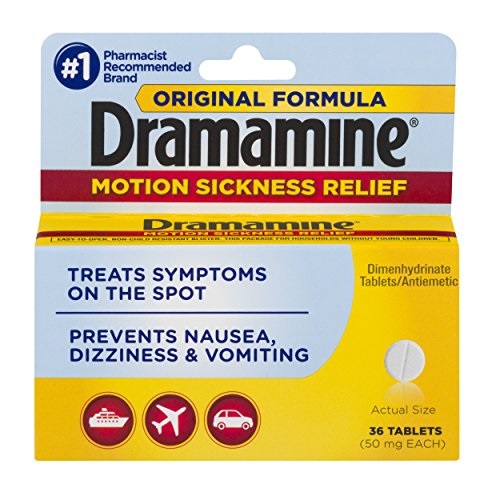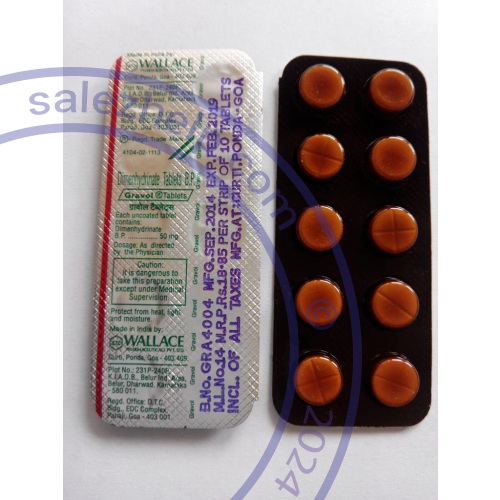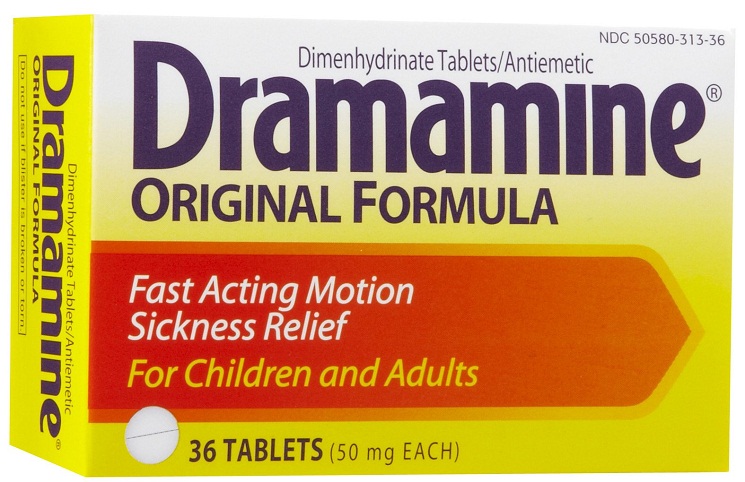


The Dramamine line offers a chewable tablet that’s specially designed with kids in mind. What’s the typical Dramamine dosage for children? You shouldn’t take more than 8 tablets (400 mg) in a 24-hour period. If you’re trying to prevent motion sickness, take your first dose 30 to 60 minutes before the triggering activity (e.g., car ride, flight). The recommended Dramamine dosage for adults is 1 to 2 tablets (50 mg to 100 mg) by mouth every 4 to 6 hours as needed. Each tablet contains 50 mg of dimenhydrinate.

But both versions have the same dosage instructions. It comes as both an oral tablet and a chewable tablet. What’s the typical Dramamine dosage for adults?ĭramamine can be a good OTC medication to have on hand to treat or prevent motion sickness. But it’s important to know how much is safe to take should you need it.īelow, we’ll review the typical Dramamine dosages for adults and children. It’s an antihistamine that works in the brain to block motion sickness symptoms like nausea and vomiting. Fortunately, there are medications available to help prevent and treat motion sickness.ĭramamine (dimenhydrinate) is a popular over-the-counter (OTC) motion sickness medication. You may experience nausea, dizziness, and vomiting. Movement, such as riding in a car, plane, or boat, can confuse your senses and make you feel sick. You can buy cinnarizine from your pharmacy but the pharmacist can only sell it to people who have motion sickness.Motion sickness - an unfortunate hassle of traveling for many people. Can I buy medicines over the counter medicines for vertigo? If for some reason one medicine has caused a side-effect or there is a reason you cannot take one, your doctor can choose a different type of medicine that will suit you. There are very few people who cannot take a medicine for vertigo. This usually goes away once this medicine is stopped. Prochlorperazine can cause muscle twitching of the shoulders, face and neck. Common side-effects include drowsiness, constipation, headaches, tiredness, trouble with sleeping ( insomnia) and indigestion. Most side-effects of vertigo treatment are not serious and each person may react differently to these medicines. If you want more information specific to your medicine, see the information leaflet that came with your medicine. However, as with all medicines, there are a number of side-effects that have been reported. It is not possible to list all the possible side-effects of each of these medicines in this leaflet. A growth in the brain (acoustic neuroma).Less commonly, vertigo may be caused by conditions that make changes to certain parts of the brain - for example: It it thought to be caused by tiny fragments of debris in the inner ear. This causes intense dizziness (short episodes of vertigo) in head movements when you move your head in certain directions. A common cause of vertigo in older people is benign paroxysmal positional vertigo. Other conditions that can affect the inner ear and cause an episode of vertigo include Ménière's disease, motion sickness and toxicity of the ear caused by medicines. If there are problems with the inner part of the ear then this causes us to feel sick (nausea) and feel dizzy. Vertigo does this by sending signals to the brain and this helps us to keep our balance. When we move our head, the inner part of the ear is a balance organ and tells us where our head is. The most common cause of vertigo is a problem with the inner part of the ear - for example, an infection or inflammation.


 0 kommentar(er)
0 kommentar(er)
